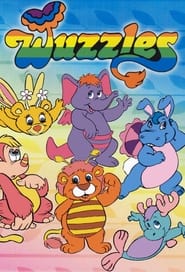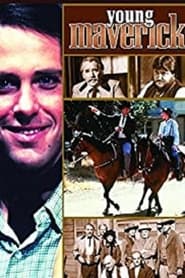Cbs TV Series - Page 67
-
Bicentennial Minutes
0000
star 7.5Bicentennial Minutes was a series of short educational American television segments commemorating the bicentennial of the American Revolution. The segments were produced by the CBS Television Network and broadcast nightly from July 4, 1974, until December 31, 1976. The segments were sponsored by Shell Oil Company. The series was created by Ethel Winant and Louis Friedman of CBS, who had overcome the objections of network executives who considered it to be an unworthy use of program time. The producer of the series was Paul Waigner, the executive producer was Bob Markell, and the executive story editor and writer was Bernard Eismann from 1974 to 1976. He was followed by Jerome Alden. In 1976, the series received an Emmy Award in the category of Special Classification of Outstanding Program and Individual Achievement. It also won a Special Christopher Award in 1976. The videotaped segments were one minute long and were broadcast each night during prime time hours, generally at approximately 8:57 P.M. Eastern time. -
The Beagles
0000
star 4The Beagles is an animated cartoon television series that aired on CBS from September 10, 1966 to September 2, 1967 and later in reruns on ABC from September 9, 1967 to September 2, 1968. It was produced by Total Television which created King Leonardo and His Short Subjects, Tennessee Tuxedo and His Tales, and Underdog. -
West 57th
0000
West 57th
0000
West 57th is a newsmagazine series which aired on CBS from August 13, 1985, through September 9, 1989.West 57th originally premiered as a summer series, and took its name from the New York address of the CBS Broadcast Center. The original correspondents were Jane Wallace, Bob Sirott, Meredith Vieira, and John Ferrugia. Later contributors included Steve Kroft, Selina Scott, Karen Burnes, and Stephen Schiff. The style of the program was intended to use the contemporary tools of television to tell compelling stories. The show's popularity, a concern for Hewitt, prompted 60 Minutes pundit Andy Rooney to dedicate one of his closing segments on his program to a parody of West 57th correspondents. After the cancellation, the show was replaced by the short-lived Saturday Night with Connie Chung. Vieira and fellow correspondent Steve Kroft transferred to 60 Minutes, where Kroft currently remains. Vieira went on to anchor NBC's Today Show. Sirott moved to Chicago to continue a successful career in local TV and radio. John -
Dotto
1958
Dotto
1958
Dotto is an American television quiz show which aired on CBS from January 6 to August 15, 1958 and was hosted by Jack Narz. Although it quickly became the highest-rated daytime game show on television, its end came when it became the unexpected first casualty – and ignition – of the quiz show scandals that rocked American broadcasting as the 1950s closed. -
The Wuzzles
1985
The Wuzzles
1985
Disney's Wuzzles was an American animated television series created for Saturday morning television, and was first broadcast on September 14, 1985 on CBS. Wuzzles features a variety of short, rounded animal characters (each called a Wuzzle, which means to mix up). Each is a roughly even, and colorful, mix of two different animal species (as the theme song mentions, "...livin' with a split personality"), and all the characters sport wings on their backs, although only Bumblelion and Butterbear are seemingly capable of flight. All of the Wuzzles live on the Isle of Wuz. Double species are not limited to the Wuzzles themselves. From the appleberries they eat to the telephonograph in the home, or a luxury home called a castlescraper, nearly everything on Wuz is mixed together in the same way the Wuzzles are. The characters in the show were marketed extensively. -
The Continental
0000
The Continental
0000
The Continental was a 1952 CBS television series starring Renzo Cesana in the title role. The 15-minute program was shown on Tuesdays and Thursdays at 11:15pm, at the end of the night's prime time schedule. The series used a subjective camera, as Cesana spoke directly to women in the viewing audience in a suave manner, with each episode a different romantic rendezvous, accompanied by lounge music played on an electric organ. Occasionally, he would recite the lyrics to a song. In an era when advertisers and advertising agencies played major roles in program creation and sponsorship, the show began as a syndicated 15-minute radio show created, written and produced by agency owner Cesana on Los Angeles station KHJ in February 1951. It directly followed The Lonesome Gal, a nationally syndicated radio show in which host Jean King played records and spoke in a soothing monologue to male listeners. The Continental failed to attract an audience and was soon cancelled. Cesana convinced television station KNBH to air a vid -
Go Toward The Light
0000
star 7.5Go Toward the Light is a 1988 television film starring Linda Hamilton, Joshua Harris and Richard Thomas. The film first aired on CBS on November 11, 1988. -
The Next Tycoon
0000
The Next Tycoon
0000
The Next Tycoon is a reality television series that originated in Atlanta, Georgia, by W. Cliff Oxford. As a televised business plan competition, the show features entrepreneurs who present their business plans in front of national business leaders to show what makes their business plan better than all the rest. Four finalists will then face a panel of media and business experts and a live audience. There is a group of judges and an alternate group called the School of Hard Knocks, which judges each contestant. The show is hosted by W. Cliff Oxford and Minoo Hosseini, while the judges and the School of Hard Knocks alternate per episode. -
Spin-Off
0000
Spin-Off
0000
Spin-Off is an American game show created and produced by Nick Nicholson and E. Roger Muir for CBS in 1975 that was based on the dice game Yahtzee. The series was hosted by Jim Lange and announced by Johnny Jacobs. The show replaced The Joker's Wild on CBS' daytime schedule and debuted on June 16, 1975, but was cancelled on September 5, 1975. Spin-Off originated in Stages 31, 33 and 41 at CBS Television City in Los Angeles, California. -
Young Maverick
1979
star 5.5Young Maverick is a 1979 television series that unsuccessfully attempted to recapture some of the magic of the highly successful 1957 series Maverick, which had starred James Garner as roving gambler Bret Maverick. Charles Frank played Ben Maverick, the son of Bret's first cousin Beau Maverick, making him Bret's first cousin once removed. Frank's real-life wife Susan Blanchard played his girlfriend Nell, while John Dehner appeared as a frontier marshal who had arrested Ben's father Beau decades before. The series was cancelled by CBS after only eight hour-long episodes had been shown, leaving several which were never aired. The 1978 TV-movie The New Maverick, featuring Garner as Bret, Frank as Ben, Jack Kelly as Bret's brother Bart Maverick, and Blanchard as Nell, served as the pilot for the series. Garner appeared as Bret Maverick in the very first scene of the series, but only for a few moments. Among the actors appearing on the series were Howard Duff, John McIntire, James Woods, Donna Mills, and Harry Dean Sta -
Bill
0000
Bill
0000
Bill is a 1981 CBS TV movie starring Mickey Rooney and Dennis Quaid. The film is based on the life of Bill Sackter. A sequel, Bill: On His Own, was released in 1983. -
Meatballs & Spaghetti
0000
Meatballs & Spaghetti is an American animated television series that aired on CBS on Saturday morning from September 18, 1982 to September 10, 1983. -
Faye Emerson's Wonderful Town
0000
Faye Emerson's Wonderful Town, also known as Wonderful Town, USA, is a 42-episode live half-hour variety television series which aired on CBS from June 16, 1951, to April 12, 1952 in which Faye Emerson visits various cities, mostly in the United States, to focus on the different kinds of music associated with each location. -
60 Minutes II
0000
60 Minutes II
0000
60 Minutes II was a weekly primetime news magazine television program that was intended to replicate the "signature style, journalistic quality and integrity" of the original 60 Minutes series. It aired on CBS on Wednesdays, then later moved to Fridays at 8 p.m. The original 60 Minutes continued airing on Sunday nights throughout the run of 60 Minutes II. The first edition of 60 Minutes II ran on January 13, 1999. Its final airing was September 2, 2005. 60 Minutes II was renamed 60 Minutes by CBS for the fall of 2004. CBS News president Andrew Heyward stated at the time, "The Roman numeral II created some confusion on the part of the viewers and suggested a watered-down version." The show was later renamed 60 Minutes Wednesday to differentiate it from the original 60 Minutes Sunday edition, but reverted to its original title on July 8, 2005, when the show moved to the 8 p.m. Friday timeslot, where it completed its run. -
Honestly, Celeste!
1954
Honestly, Celeste!
1954
Honestly, Celeste! is an eight-episode 1954 CBS situation comedy starring Celeste Holm as Celeste Anders, a 37-year-old college journalism professor from Minnesota who accepts a reporter’s position on the staff of the fictitious New York Express newspaper. -
Adventures in Jazz
0000
Adventures in Jazz
0000
Adventures in Jazz is a 1949 CBS television show. The program was broadcast live, showcasing jazz musicians and singers. Ella Fitzgerald, Billie Holiday and June Christy made appearances on the short-lived series. Radio personality Fred Robbins hosted the series premiere, but left due to other commitments. He was replaced by actor Bill Williams until his return in May 1949. -
The Ad-Libbers
0000
The Ad-Libbers
0000
The Ad-Libbers is a CBS comedy sketch game show that aired in 1951. A summer replacement for Mama, five live shows were broadcast before the series ended. -
In the News
0000
star 7In the News is a series of two-minute televised video segments that summarized topical news stories for children and pre-teens. The segments were broadcast in the United States on the CBS television network from 1971 until 1986, between Saturday morning animated cartoon programs, alongside features like Schoolhouse Rock and One to Grow On, which aired on competing networks ABC and NBC, respectively. NBC would also go on to produce its own competing version called Ask NBC News. The "micro-series" had its genesis in a series of animated interstitials produced by CBS and Hanna Barbera Productions called In The Know, featuring Josie and the Pussycats narrating educational news segments tailored for children. This was eventually metamorphosed into a more live-action-oriented micro-series produced solely by CBS' news division. In the News segments attempted to explain the essence of complex news stories to children, and to do so in a way that might engage a young audience. Video clips of national or world events and sp -
The Hollywood Game
0000
The Hollywood Game
0000
The Hollywood Game is a prime time game show hosted by Bob Goen that ran for four weeks on CBS during the summer of 1992. It involved two teams of two contestants each, who answered trivia questions about film and television. In most rounds, the teams chose trivia categories that were represented by the nine letters in "H-O-L-L-Y-W-O-O-D". Peter Allen hosted the pilot, which taped on May 14, 1991. However, he was too ill to host the series and died the day before its premiere. The show was taped at CBS Television City's Studio 33 and was the first game show John Cramer announced. The Hollywood Game was the last game show to air in primetime until Who Wants to Be a Millionaire.


